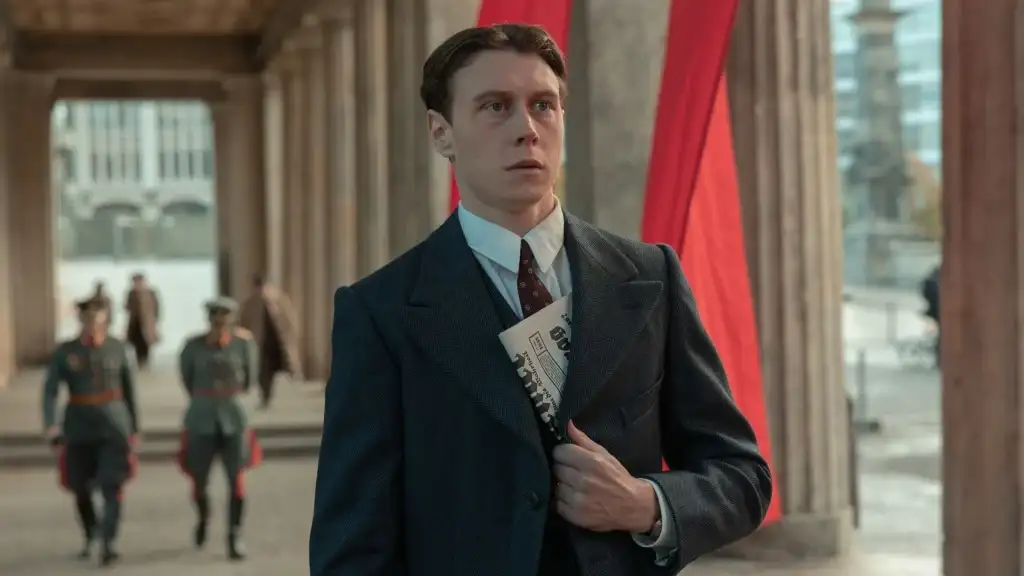
Watch ‘Munich: The Edge of War’ Review: Netflix’s Sturdy Wartime Thriller Direction from Roman Polanski and written by David Thompson, who also wrote John Wick, places a jaded, hardcore student of modern warfare at the center of an intense war crime mystery. Here’s what to expect from Roman Polanski’s “Munich” Netflix original movie: bloody, tense, and, ultimately, bittersweet.
An historical drama centered on one of the most famous and harrowing events in the Second World War, this is the first Polanski film in eight years and his first in English language since 2002’s “Carnage.” An exercise in action cinema, “Munich” sees Polanski directing a smart, cerebral movie that allows for him to display his preternatural ability to probe what makes war so frightening and how that fear can be exploited, with vicious brutality.
As unblinking a cinematic event as the “Redmayne angle” has been to work with, the Holocaust — itself an opaque and overwhelming subject — remains the perfect study material for a filmmaker who can break it down and frame it with such clarity. As an ensemble piece, it’s also the closest thing to a recent Polanski film that one could reasonably call an ensemble — as is another of his German dramas, “The Pianist.”
It’s fascinating to watch a virtuoso like Polanski reinvent his toolbox and delve into uncharted waters. Three decades after he had his directorial license suspended in the U.S. for taking a 13-year-old girl into the Jack Nicholson room, the filmmaker’s own harshest critic could be found in the comments section, demanding that he return to the U.S. and “serve time.” But the power of “Munich” is that it also feels like a response. The 80-year-old filmmaker came to this particular war with his feet planted in two camps: the champion of a robust use of action filmmaking, and the pithy pragmatist who eschews such excess for soul-crushing concentration.
His latest, “Munich,” explores the ambiguities of war with the doggedness of a detective in the hunt for an elusive killer. This interest in such things is readily apparent in the opening scene, which beautifully crafts the psychological tension of an interrogation without ever getting too gruesome or showy. One of the foremost historians of the 1944 Munich airlift, Christian Fuchs (played by the always great Janine Jaquet-Droz), first meets Paul Aschbacher (Ben Schnetzer), a privileged and enthusiastic student of modern warfare, in a University of Munich library. “Munich” feels very much like a “Justice League” installment for black-and-white fans of war films and episodes of “Downton Abbey.” The logistical trainwreck that is the Munich airlift (named after its capital) leaves Aschbacher enraged and is the reason he decides to accept an invitation to speak about his research to an adoring crowd at the German Institute.
He’s going to make some sense. And that’s the problem: The more he learns, the more he realizes the world he’s known through movies and TV is wrong, and the events he’s been taught to memorize in class — the moment when, years later, he accidentally got caught trying to smuggle Hitler out of Berlin — have actually happened. “Munich” then sees Aschbacher descend into a maelstrom of chaos — as do.